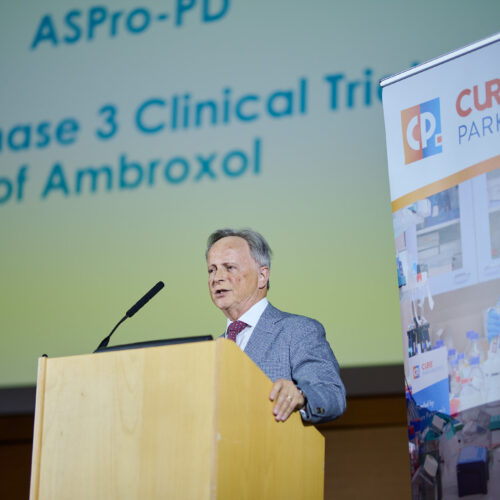There is a strong scientific rationale to study c-Abl inhibitors in Parkinson’s disease, since multiple studies have shown the c-Abl inhibition is protective in multiple models of Parkinson’s disease.
Professor Ted Dawson
Clinical Evaluation
Subsequent to this preclinical research, a very small pilot clinical study was initiated in people with Parkinson’s using a c-Abl inhibitor drug called Nilotinib – a clinically available drug already used in the treatment of leukaemia. Initial safety tests in people with Parkinson’s, and a larger, placebo controlled clinical trial, supported by Cure Parkinson’s and the Michael J Fox Foundation, to assess Nilotinib in a blinded approach, showed limited effect due to poor brain penetrance.
The Progress of Novel c-Abl inhibitors
There are further novel c-Abl inhibitors now being clinically tested which demonstrate a more effective penetrance and target engagement. These trials include:
K0706
K0706 is being clinically tested in the Sun Pharma SPARC large Phase II “PROSEEK” study, which involves 500+ participants.
Find out more




